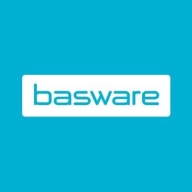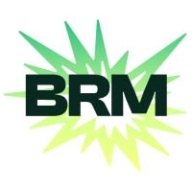

Basware e-Procurement and BRM are competitors in procurement solutions. BRM stands out due to its comprehensive features that justify its cost.
Features: Basware e-Procurement automates procurement processes and provides seamless invoicing tools, enhancing efficiency. It also offers user-friendly reporting. BRM offers advanced workflow customization, robust contract management capabilities, and detailed transactional control tools, appealing to businesses seeking comprehensive solutions.
Ease of Deployment and Customer Service: Basware e-Procurement is known for straightforward deployment and reliable support, ensuring smooth onboarding. BRM provides a flexible deployment model and personalized service options, better accommodating diverse business needs with adaptable customer interactions.
Pricing and ROI: Basware e-Procurement is more budget-friendly with affordable setup costs, appealing to cost-conscious businesses. BRM delivers higher ROI with its extensive feature set and impact on long-term efficiency. Despite Basware's initial affordability, BRM promises a stronger return on investment through enhanced performance.
It’s time to deliver an e-Procurement solution designed to fit into the way people already work today so it becomes the most natural (and compliant!) way for them to get what they need. People expect a consumer-like shopping experience, mobile capabilities, advanced search functionality, personalisation, and an e-Procurement solution that gets them what they need easily and quickly. When people have an e-Procurement solution that makes their lives easier and gets them orders quickly, they will use it every single time. And that's how you achieve 100% user adoption.
BRM is designed to streamline business resource management by offering a seamless integration of processes and data within organizations, enhancing communication and efficiency.
BRM serves as a comprehensive tool for organizations aiming to optimize their business processes. It offers valuable features that cater to needs such as data management, resource allocation, and process automation. Implementing BRM can lead to improved operational efficiency, better resource tracking, and enhanced decision-making capabilities. While powerful, BRM provides room for improvement in its integration capabilities with third-party systems, offering potential for expanded functionality.
What are the key features of BRM?BRM implementation varies across industries like manufacturing, healthcare, and finance, adapting to the specific process needs. In manufacturing, it helps in effective resource planning and inventory control, while in healthcare, it improves patient data management and service delivery. In finance, BRM aids in financial data analysis and reporting, boosting efficient financial planning.
We monitor all Procurement Software reviews to prevent fraudulent reviews and keep review quality high. We do not post reviews by company employees or direct competitors. We validate each review for authenticity via cross-reference with LinkedIn, and personal follow-up with the reviewer when necessary.